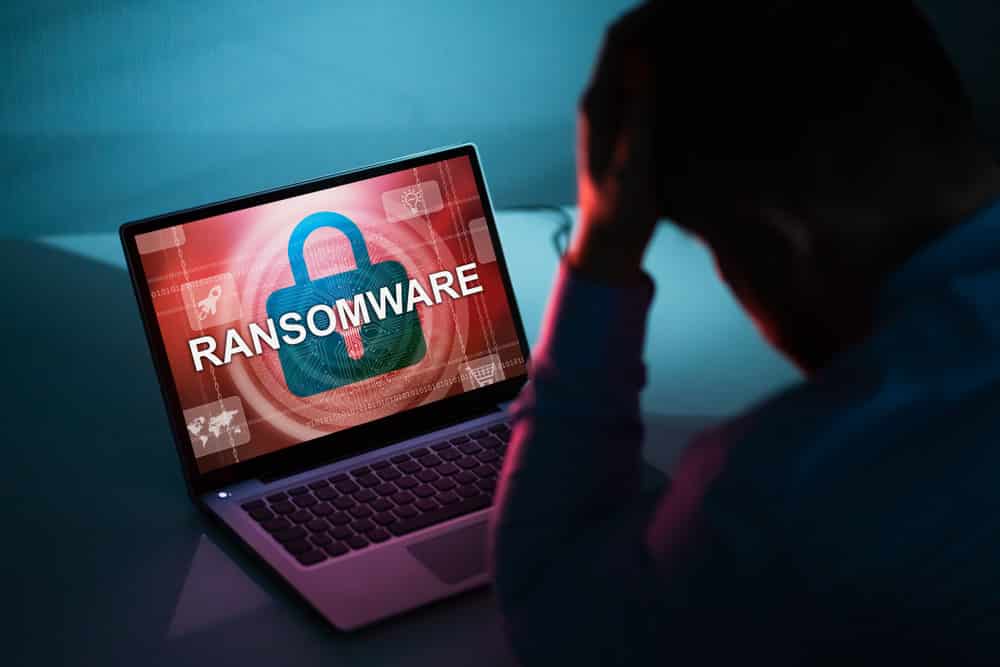Ransomware has become the dominant attack vector, or method of illegally accessing a computer network in an attempt to steal private data information and exploit its system, for cyber criminals. The FBI reported a 62% increase in ransomware attempts during the first seven months of 2021and was present in almost 10% of reported data breaches.
Cyber criminals are using ransomware to attack supply chains and their digital infrastructures. They use social engineering (also known as phishing) and unpatched systems as inroads into a poorly defended network to retrieve as much data as they can.
Finally, hackers are exfiltrating, or selling, this data to another location, and sometimes they threaten to release the information they stole if a ransom is not paid.
As cyber attacks continue to grow, you might wonder how you can protect your dental office and its system from compromise by an outside source.
What Is Ransomware?
Ransomware is a subset of malware, or malicious software, that hackers use to deny people access to data, computers, or entire networks. The software encrypts the data and displays a message, oftentimes demanding a fee for the encryption key to unlock the data. Typically, the ransom amount increases if the initial deadline is not met.
Today’s cyber criminals deploy ransomware that first destroys any backups on the network, then copies data to another location. Only after those processes are complete does the ransomware message appear.
Hackers have learned how to circumvent basic preventive measures and exploit stolen data, but there are ways that you can protect your dental office’s network from a security breach.
How Can I Protect My Practice From Ransomware?

Even though ransomware is a prolific piece of malware, it is possible to protect your practice against cyber attacks. It takes more than installing protective technology, although that is a crucial step. It also requires keeping your entire practice informed and trained on the latest phishing schemes and social engineering strategies that cyber criminals use to try to gain access to a business’ network.
Strong cyber defenses demand 100% participation from everyone and the deployment of cyber security’s best practices.
#1. Create Secure Backups
As mentioned earlier, cyber criminals know most companies back up their systems in case of a ransomware attack. With the data safely stored, businesses do not have to pay the ransom to restore their systems.However, today’s hackers also know that many organizations place their backups on the same network as their production system. That’s why the first step in a ransomware attack is to locate system backups and disable them.
The best practice for maintaining secure backups is to store them off-network where bad actors can’t find them. If they can’t be found, they can’t be disabled, which makes it easier for you to counter the demands from cyber criminals.
For help setting up an off-site backup strategy, contact Erickson Dental Technologies to speak with a cyber security specialist today.
#2. Train and Inform Your Staff
The majority of cyber security incidents are the result of human error. To prevent these errors from happening, there are ways to train your staff to protect your dental office from a security breach before it happens, including:
- Check the address of all emails
- Do not click on unscreened email attachments
- Do not click on embedded website links
- Do not release sensitive data without approval
Make sure you keep your staff informed on the latest phishing trends cyber criminals use in order to defend your computer network against cyber attacks. Talk to one of our cyber security professionals at Erickson for details on how to strengthen your network security.
#3. Implement Advanced Email Scanning
Cyber criminals often learn from their failed attempts and become better at embedding links into malicious websites or disguising infected email attachments to fool you into opening them, which could lead to an attack on your system.
If your practice does not have an advanced email scanning solution, consider learning more from Erickson Dental Technologies to help minimize malicious emails that reach employees and help increase the ability of your workforce to focus on any emails that might potentially slip through.
#4. Stay Away from Suspicious Websites
As technology continues to advance, so will the rise of cyber criminals. Not all cyber criminals use emails as a way to try and hack their way into your dental office’s data information. They might also use websites that are designed to trick people into downloading dangerous malware into their software systems.
If you ever click on a link when visiting a website, and it takes you to another unprotected source, close out of the page instantly. This is the best way to protect yourself against an attack on your dental office’s cyber security.
#5. Have A Response Plan
Every practice should always be prepared for the worst and have a documented cyber security response plan if a security breach were to occur. This plan should explain how to access all of your backups, who to contact in case of a breach, and outline any compliance requirements your employees should take.
Time is crucial when defending against a cyber attack and having a detailed response plan will ensure all the appropriate actions are taken as quickly as possible, if your network is compromised by a cyber attack. Additionally, make sure to print out your response plan for your employees, so they can alway reach it in the event of a security breach.

Get Help From a Professional Dental IT Service
You don’t have to strengthen your cyber defenses alone. With over 30 years of experience, you trust our knowledgeable cyber security and IT professionals at Erickson Dental Technologies to help you develop a plan that works for your business.
Our team of cyber security experts are trained in backup technologies, security strategies, and cyber response plans, and they can help you create a plan to ensure your dental office is protected against ransomware attacks.
Contact us today to see how we can help increase your cyber security.


